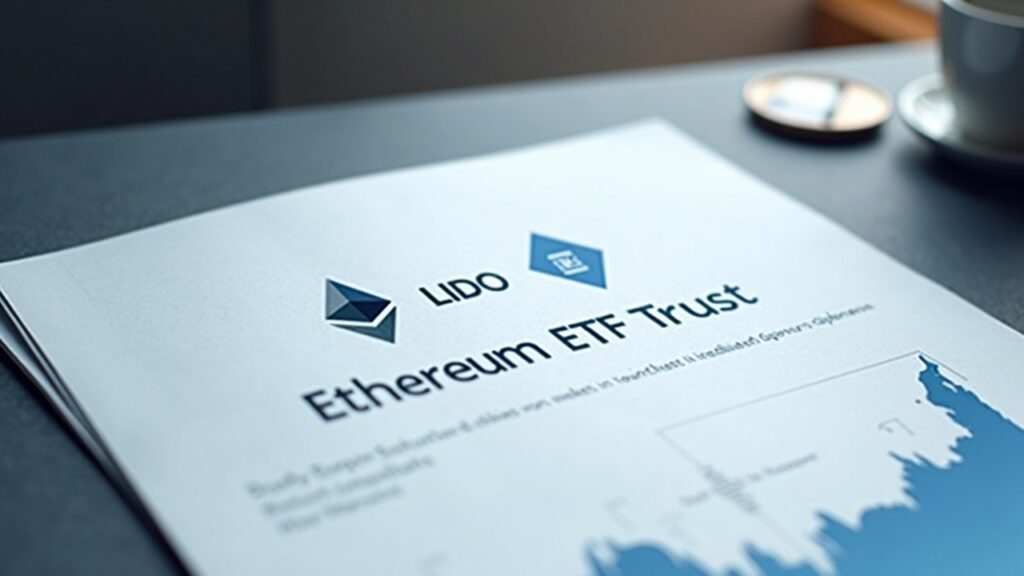VanEck filed paperwork in Delaware to create the VanEck Lido Staked Ethereum ETF Trust. A proposed exchange traded fund that would track stETH, the token issued by Lido when users deposit ETH for staking. Investors would receive validator yield projected at 3 – 5% a year without operating any hardware. The structure gives institutions and retail holders a regulated path to staking returns.
The ETF is designed to track stETH, a transferable token that evidences ETH locked in Lido and accrues validator rewards. By holding the fund, investors could access staking income without running validators or hardware. The target yield guided at 3 – 5% annually.
Delaware serves as the trust’s legal home but state paperwork does not confer federal approval. An SEC staff letter issued in August 2025 clarified how liquid staking models will be reviewed. The agency still questions market surveillance, asset custody and manipulation risk. A government shutdown or similar event could lengthen the review, and the firm must now submit the full prospectus to the SEC.
Market reaction from VanEck operation
After the filing became public, LDO climbed roughly 7%. Spot and derivative activity expanded — trading volume reached $426.9 million, up 45%, and open interest rose 6.6% to $222.6 million.
SEC approval would let institutions collect staking income without running validators. The same outcome concentrates stake — Lido oversees about $38 billion in deposits or one third of all staked ETH, a share that raises systemic and governance issues. Custody of the underlying tokens and the legal status of staking rewards may extend the review and trigger volatile fund flows.
The Delaware move positions the fund to channel capital into Ethereum staking, but approval is uncertain and the outcome hinges on regulators and on how custody and concentration concerns are resolved.


